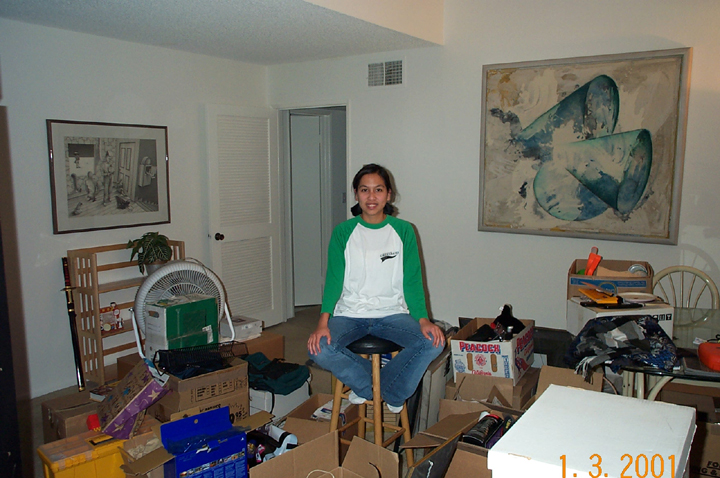September 1, 2001
Many things need to be taken care of after you sign the lease and before you even start packing. Make sure that your utilities—electricity, water, gas, and phone—are turned on before you move in. Inform everyone about your change of address and phone number, especially your school and credit cards. Go to the post office and get the change of address form. You can have your mail forwarded to you for some months after your move.
There are different ways you can go about moving: self move with the help of your friends using your own cars or a rental truck, find some hired hands to help you self-move, or hire different types of movers or moving services. Having your friends help you is the cheapest way, but it involves the hardest labor and the risk of straining your friendship. Keep in mind if you ask your friends to help you move, you owe them your help when they move in the future. You need to coordinate well with your committed friends as to when to arrive, when it should be done, and where to park. As a thank you gift, at least buy them lunch or dinner during the move, then buy them something nice afterward too. Same treatment applies to asking them to help you with a mover truck (or a U-Haul).
Renting a U-Haul is quite easy. The only thing is that you have to be over 25 with a driver’s license to rent the truck, so ask those graduate student friends of yours right away. If you are planning to move on the weekend, call in at least a month in advance. Shop around before making any decision. There are different kinds of moving vehicles you can rent from a large van, a trailer, to a big truck. Choose the one that fits your need. There are also different options like returning the truck the next day, or one-way move—you rent from one branch, and return the truck at the other.
Hiring professional movers may cost an arm and a leg, but depending on your situation. If you are moving cross country, have a lot of furniture, and/or have no one to help you, the movers would be your best bet. However professional movers will not be as concerned about scratches on your furniture or dropping boxes as you and your friends will be.
Don’t underestimate the amount of your possessions. You never realize how much you have until you start packing. Whether you’re coming fresh from Thailand, or moving from one place to the other, start your packing early. Be brave and insensitive in eliminating things you no longer need. Don’t bring all your clothes from Thailand because you will have to buy some new clothes here to better suit the weather and fashion. You can either donate your old stuff, or have a yard sale. (We will discuss that in the next article.) The less you have to move, the easier the move will be.
Efficiently packed boxes are much easier for the whole process. You can ask for some boxes from grocery stores, but you might need to buy some packing boxes. Pack your things in categories if you can, seal the boxes, and clearly label them. It’s easier to just leave the “Kitchen-Spices” box in the kitchen instead of finding your bottle of fish sauce in your closet. If you hire a professional mover, they might even have you color-code your boxes. Wrap fragile items with bubble wrap, with newspapers, or some of your towels if you’re on a budget. Don’t forget to mark the box “Fragile”. Test the box to see if it’s too heavy, and if it needs more tape reinforcement.
After you moved everything out of your old home, you need to clean it up in order to get your security deposit back. A security deposit is money you put down when you move in which covers repairs and cleaning costs so that the next person renting your old apartment moves in a nice clean place. Security deposits are returned to you based on the condition of the place after you leave. If you leave with holes in the wall and mold in the shower you will not get any of your money back. Packing your “First Night Survival Pack” wouldn’t be too bad of an idea. Spare some clothes, towels, and other essentials in your overnight bag and one extra box. Last, but not least, return your key to your manager, and make sure the management has your new information. Some of them will give you your deposit right away, and bill you later for any damage. Some will wait to send you the check with deductions later.
Now you’re in your new home of your new home after you’re done packing.) You will find more stuff to get rid of, and you may need to buy more things to make the place home. New furniture and appliances might be in order, but purchasing the used ones is the way to go if you’re on a budget. You can look for used furniture listings on your school’s bulletin boards, and local newspapers, or even at garage sales.
You might find yourself diving from box to box in your apartment for a while, but don’t forget to explore your new neighborhood a little bit. Drive around to check out the local hangouts, and familiarize yourself with the streets too. Once you know where everything else is, and get yourself all unpacked, it’s time to call all your friends up again. This time, to invite them over for a housewarming party!

This is what the living room looked like about a week after we moved in.
(Yeah, we're a bunch of slackers!)
Related Links